The Winston Churchill Memorial Trust is looking for people who:
- Would benefit from experience overseas so that their effectiveness in their career or field of interest was enhanced
- Are in a position to disseminate their new knowledge and examples of best practice for the benefit of their communities and the UK
In the past the School of Tourism has been particularly successful in obtaining these fellowships with 4 members of staff (and 2 spouses) gaining awards. The funding is good, and being a fellow opens you up to a range of networks and opportunities that are often not normally easily accessible.
The categories for this year are listed below, and seem to cover most areas of interest in the University. It is important to pitch you application correctly, and there are qualifications as to who may apply (you need to be a British Citizen), so please feel free to come and have a chat. Closing date is 2 October 2012.
Science, Engineering & Technology: Applications are welcome from right across this wide field, especially with respect to the popularisation of science, reverse innovation and smart growth.
Environment, Food & Rural Affairs: Those involved in the countryside, food production, environment and conservation, including those interested in the natural environment and biodiversity and waste management.
Education: Applications are sought from those working to improve the achievement of students aged 5-19, with particular emphasis on English, Maths, Science and Technology. We are also seeking applications from Deputy Head Teachers who are future Head Teachers, in a joint project with the Farmington Trust.
Business, Industry & Commerce: We are especially interested in those running Social Enterprises who wish to learn from models overseas, particularly in emerging markets. We’re also keen to receive applications for projects focussed on making Corporate Social Responsibility more effective.
Medical and Health: Applications are welcome from across this wide spectrum, especially from those with an interest in alcohol-related health issues and continuity of care, both medical and management.
Communities that Work: This category is for those working in all areas of developing stronger and more effective communities. (This is the second year of a joint project with The Rank Foundation).
The Creative Industries: Applications are welcome from anyone in this wide field wishing to research new and innovative ideas from overseas.
The Arts and Older People: Those providing opportunities for older people in all aspects of music, dance, drama and the fine arts. (This is the second year of a joint 3 year project with The Baring Foundation).
Prison & Penal Reform: Those involved in prison and penal reform and related sentencing issues, who are interested in projects that reduce re-offending and contribute to a just, humane and effective penal system. (A joint project with The Prison Reform Trust and supported by the ICPS)
Open: Anyone with an appropriate project not covered by other categories, including Exploration (expedition leaders only), and Music Education (a joint project with The Finzi Trust), should apply here.
Further details at: http://www.wcmt.org.uk/
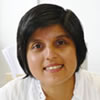 Dr. Dinusha Mendis has published a paper on 3D Printing and its implications for Intellectual Property Law titled ‘“The Clone Wars”: Episode 1 – The Rise of 3D Printing and its implications for Intellectual Property Law: Learning Lessons from the Past?’ The paper was published in the European Intellectual Property Review in February 2013 (pp. 155-169).
Dr. Dinusha Mendis has published a paper on 3D Printing and its implications for Intellectual Property Law titled ‘“The Clone Wars”: Episode 1 – The Rise of 3D Printing and its implications for Intellectual Property Law: Learning Lessons from the Past?’ The paper was published in the European Intellectual Property Review in February 2013 (pp. 155-169).



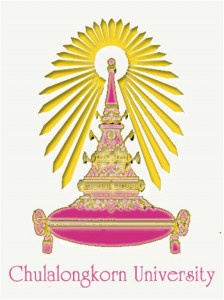

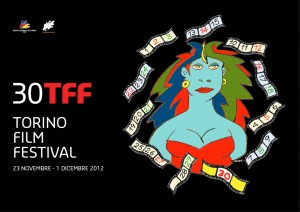

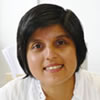




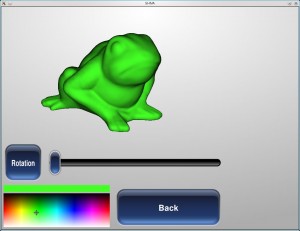













 UKCGE Recognised Research Supervision Programme: Deadline Approaching
UKCGE Recognised Research Supervision Programme: Deadline Approaching SPROUT: From Sustainable Research to Sustainable Research Lives
SPROUT: From Sustainable Research to Sustainable Research Lives BRIAN upgrade and new look
BRIAN upgrade and new look Seeing the fruits of your labour in Bangladesh
Seeing the fruits of your labour in Bangladesh Exploring Embodied Research: Body Map Storytelling Workshop & Research Seminar
Exploring Embodied Research: Body Map Storytelling Workshop & Research Seminar ECR Funding Open Call: Research Culture & Community Grant – Apply now
ECR Funding Open Call: Research Culture & Community Grant – Apply now ECR Funding Open Call: Research Culture & Community Grant – Application Deadline Friday 12 December
ECR Funding Open Call: Research Culture & Community Grant – Application Deadline Friday 12 December MSCA Postdoctoral Fellowships 2025 Call
MSCA Postdoctoral Fellowships 2025 Call ERC Advanced Grant 2025 Webinar
ERC Advanced Grant 2025 Webinar Update on UKRO services
Update on UKRO services European research project exploring use of ‘virtual twins’ to better manage metabolic associated fatty liver disease
European research project exploring use of ‘virtual twins’ to better manage metabolic associated fatty liver disease